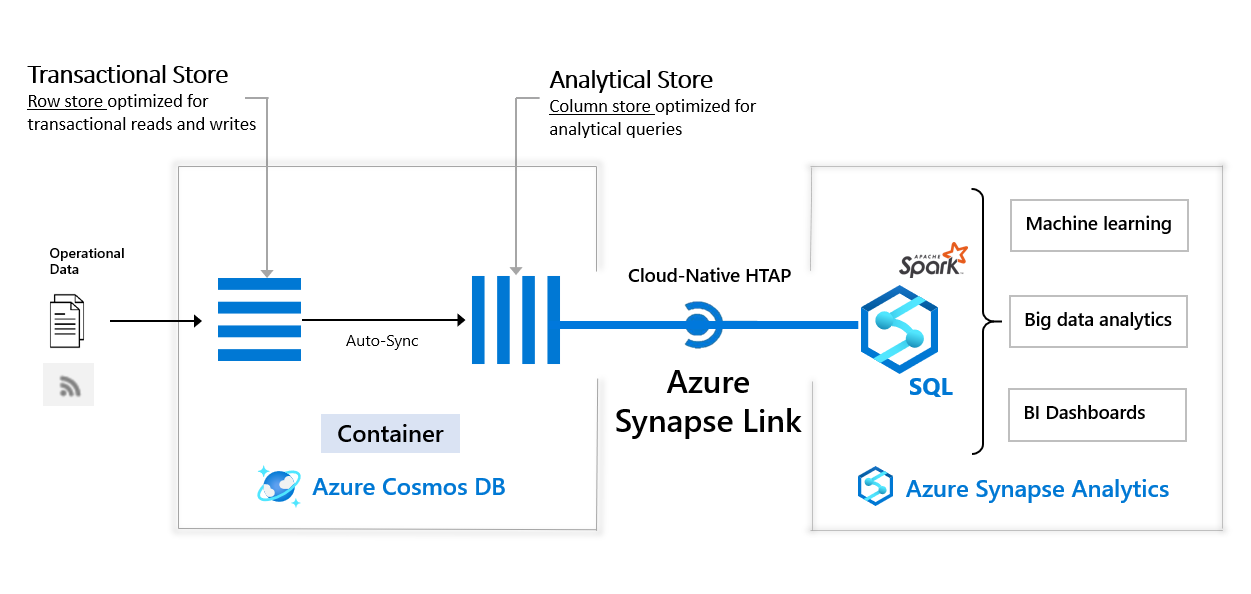The latest Microsoft DP-900 Azure Data Fundamentals certification actual real practice exam question and answer (Q&A) dumps are available free, which are helpful for you to pass the Microsoft DP-900 Azure Data Fundamentals exam and earn Microsoft DP-900 Azure Data Fundamentals certification.
Table of Contents
- DP-900 Question 1
- Exam Question
- Correct Answer
- DP-900 Question 2
- Exam Question
- Correct Answer
- DP-900 Question 3
- Exam Question
- Correct Answer
- DP-900 Question 4
- Exam Question
- Correct Answer
- DP-900 Question 5
- Exam Question
- Correct Answer
- DP-900 Question 6
- Exam Question
- Correct Answer
- DP-900 Question 7
- Exam Question
- Correct Answer
- DP-900 Question 8
- Exam Question
- Correct Answer
- DP-900 Question 9
- Exam Question
- Correct Answer
- DP-900 Question 10
- Exam Question
- Correct Answer
- Explanation
DP-900 Question 1
Exam Question
To complete the sentence, select the appropriate option in the answer area.
__________ is an Azure Synapse Analytics feature that retrieves data from Azure Blob storage by using Transact-SQL queries.
Answer Area:
A. A hierarchical namespace
B. Azure Synapse Link
C. PolyBase
D. The Data Movement Service (DMS)
Correct Answer
C. PolyBase
DP-900 Question 2
Exam Question
You need to create a visualization of running sales totals per quarter as shown in the following exhibit.
What should you create in Power BI Desktop?
A. a waterfall chart
B. a ribbon chart
C. a bar chart
D. a decomposition tree
Correct Answer
A. a waterfall chart
DP-900 Question 3
Exam Question
You need to perform hybrid transactional and analytical processing (HTAP) queries against Azure Cosmos DB data sources by using Azure Synapse Analytics.
What should you use?
A. Synapse pipelines
B. a Synapse SQL pool
C. Synapse Link
D. Synapse Studio
Correct Answer
C. Synapse Link

DP-900 Question 4
Exam Question
For each of the following statements, select Yes if the statement is true. Otherwise, select No.
Statement 1: Stream processing has access to the most recent data received or data within a rolling time window.
Statement 2: Batch processing must occur immediately and have latency in the order of seconds or milliseconds.
Statement 3: Stream processing is used for simple response functions, aggregates, or calculations such as rolling averages.
Correct Answer
Statement 1: Stream processing has access to the most recent data received or data within a rolling time window: Yes
Statement 2: Batch processing must occur immediately and have latency in the order of seconds or milliseconds: No
Statement 3: Stream processing is used for simple response functions, aggregates, or calculations such as rolling averages: No
DP-900 Question 5
Exam Question
A bar chart showing year-to-date sales by region is an example of which type of analytics?
A. predictive
B. prescriptive
C. descriptive
D. diagnostic
Correct Answer
D. diagnostic
DP-900 Question 6
Exam Question
For each of the following statements, select Yes if the statement is true. Otherwise, select No.
Statement 1: Processing salary payments once a month is an example of a batch workload.
Statement 2: A wind turbine that sends 50 sensor readings per second is an example of a streaming workload.
Statement 3: A home electricity meter that sends readings once a day to an energy provider is an example of a streaming workload.
Correct Answer
Statement 1: Processing salary payments once a month is an example of a batch workload: Yes
Statement 2: A wind turbine that sends 50 sensor readings per second is an example of a streaming workload: Yes
Statement 3: A home electricity meter that sends readings once a day to an energy provider is an example of a streaming workload: No
DP-900 Question 7
Exam Question
To complete the sentence, select the appropriate option in the answer area.
Batch workloads __________
Answer Area:
A. process data in memory, row-by-row.
B. collect and process data at most once a day.
C. process data as new data is received in near real-time.
D. collect data and then process the data when a condition is met.
Correct Answer
D. collect data and then process the data when a condition is met.
DP-900 Question 8
Exam Question
Which scenario is an example of a streaming workload?
A. sending transactions that are older than a month to an archive
B. sending transactions daily from point of sale (POS) devices
C. sending telemetry data from edge devices
D. sending cloud infrastructure metadata every 30 minutes
Correct Answer
C. sending telemetry data from edge devices
DP-900 Question 9
Exam Question
For each of the following statements, select Yes if the statement is true. Otherwise, select No.
Statement 1: Azure Databricks is an Apache Spark-based collaborative analytics platform.
Statement 2: Azure Analysis Services is used for transactional workloads.
Statement 3: Azure Data Factory orchestrates data integration workflows.
Correct Answer
Statement 1: Azure Databricks is an Apache Spark-based collaborative analytics platform: Yes
Statement 2: Azure Analysis Services is used for transactional workloads: No
Statement 3: Azure Data Factory orchestrates data integration workflows: Yes
DP-900 Question 10
Exam Question
Match the Azure services to the appropriate locations in the architecture. Each service may be used once, more than once, or not at all.
Correct Answer
Explanation
<box 1>: Azure Data factory
Relevant Azure service for the three ETL phases are Azure Data Factory and SQL Server Integration Services (SSIS).
<box 2>: Azure Synapse Analytics
You can copy and transform data in Azure Synapse Analytics by using Azure Data Factory.
Note: Azure Synapse Analytics connector is supported for the following activities:
- Copy activity with supported source/sink matrix table
- Mapping data flow
- Lookup activity
- GetMetadata activity